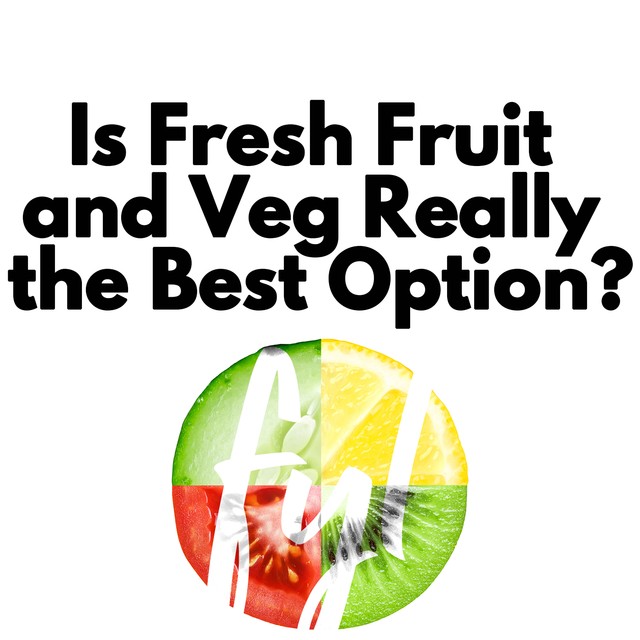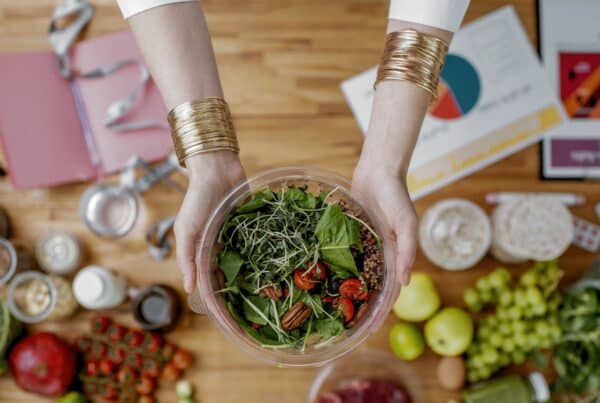When it comes to fruit and veg, it is often thought that fresh is best. But what are the facts when it comes to nutritional content? Is fresh fruit and veg really that much better?
The truth is… not necessarily. Frozen and canned foods are often given the cold shoulder despite their (often) equivalent nutrient content.
The Truth About Frozen Vegetables
Frozen produce is often thought to be a ‘less nutritious’ choice, however, they are generally harvested when they are at their ripest and snap-frozen. This means they maintain maximum nutrient levels which may otherwise have been lost when stored in cool storage.
Frozen produce is also more readily available, can help reduce food waste and are often cheaper than their fresh counterparts.
So, when it comes to frozen produce, you can rest assured knowing you are often receiving the same (if not better) nutrient content. (The Journal of the Institute of Food Science & Technology, 2014)
What about Canned Fruit and Veg?
Canned fruit and veg are also harvested when ripe, however, are often cooked and canned in brine or sugary syrups.
So, how does that negatively impact nutrient content?
- Some loss of nutrients may occur during the cooking process
- They may be higher in energy (kilojoules) due to sugar-based syrups
- Contribute additional sodium in the diet which may have negative impacts on blood pressure and kidney health
In saying this, canned fruit and veg hold a variety of benefits and with the right education, can be a relatively healthy alternative to fresh.
You can:
- Reduce the salt content of products canned in brine by peeling their skin off and/or rinsing and soaking products in water before eating
- Purchase canned foods with ‘no added salt’ or those that are ‘salt reduced’
- Opt for fruit canned in natural juice in place of syrups and drain it off before consuming
Likewise, canned products are often cheaper, are non-perishable and provide a greater variety of options.
But Who Can Go Past Delicious, Fresh Fruit and Veg?
When it comes down to it, it’s safe to say that we all prefer fresh produce.
The taste and texture are often at its best, it is convenient to prepare meals with or eat on the run and can be cost-effective when purchasing seasonal produce.
In saying this, fresh fruit and veg purchased from supermarkets have often spent weeks, even months, in cold storage and have suffered nutrient depletion as a result.
So, does that mean fresh produce is not good for us?
Certainly not! Fresh fruit and vegetables are an excellent source of vitamins and minerals essential for health. Their macronutrient, mineral and fibre content remaining similar to that found in frozen produce but must be used in a timely manner. (Harvard Medical School, 2014)
In order to maximise the nutrient content of your fresh produce, you can:
- Grow your own food and harvest for each meal
- Enjoy raw fruits and vegetables
- Serve washed fruits and vegetables with their skin on
- Reduce cooking time of vegetables and opt for a steaming method to prevent loss of water-soluble nutrients (microwave steaming is perfect!)
- Support a local farmer or farmers market, as these foods are often harvested for immediate sale
- Store your fruit and vegetables appropriately. This includes storing all vegetables in the crisper in the fridge (aside from root vegetables), fruit at room temperature away from sunlight (aside from berries) and prepared/sliced produce in air-tight containers in the fridge.
What is the best choice overall?
Trick question! The best choice is one that helps you read your 2 serves of fruit and 5 serves of vegetables daily. So, if this is a combination of seasonally fresh, frozen and canned produce, so be it!
If you’re interested in learning about the nutrient content of what you eat, one of our incredible Accredited Practising Dietitians here at Fuel Your Life wants to help! Get in touch now!







